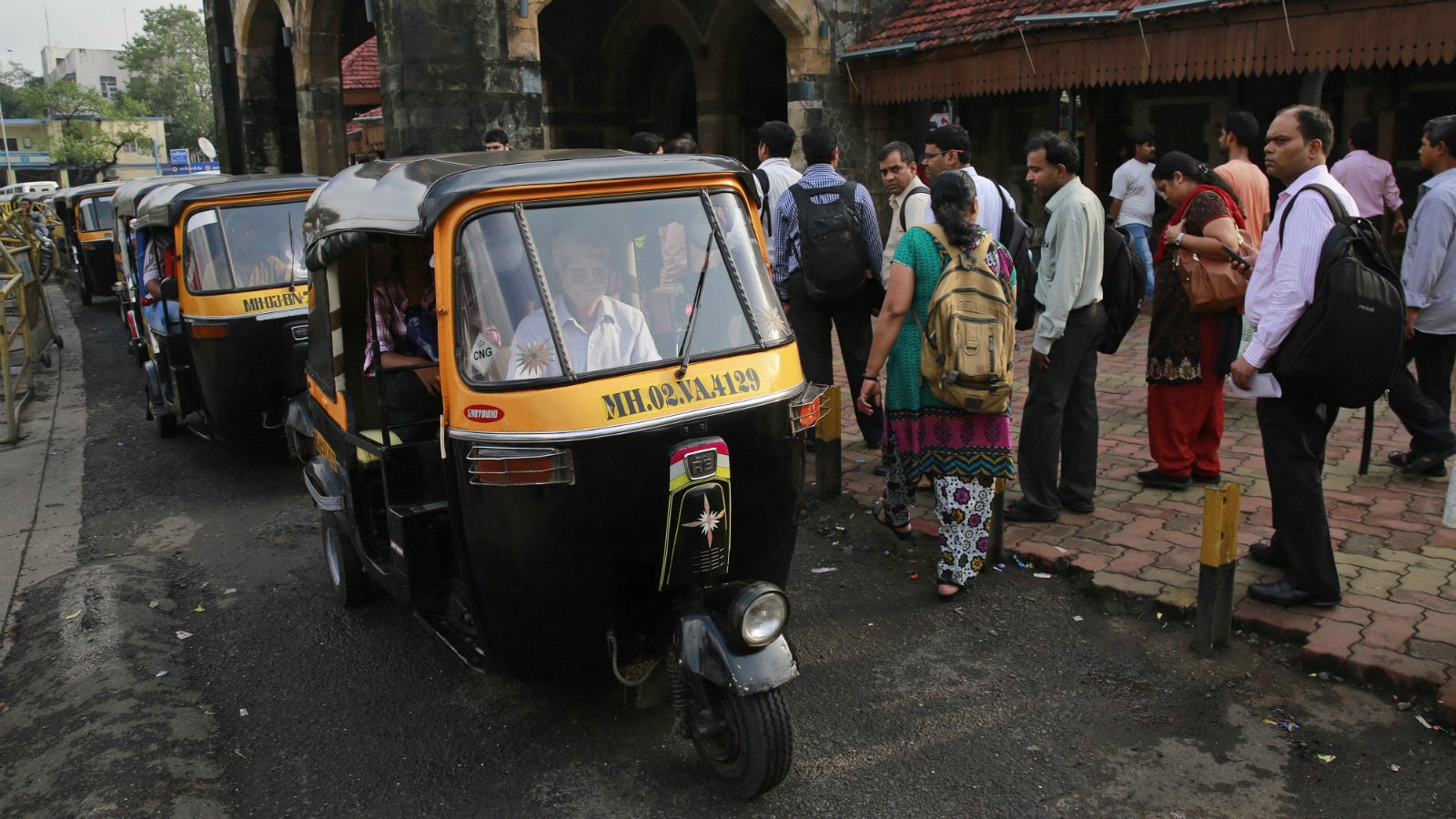Drive a Honda, drive a Maruti… or just drive an auto-rickshaw
Going shopping or to the movies? Forget taxis, bikes, or bus rides. Now, prepare to drive an auto-rickshaw yourself to the nearby mall.


Going shopping or to the movies? Forget taxis, bikes, or bus rides. Now, prepare to drive an auto-rickshaw yourself to the nearby mall.
On March 27, Zoomcar, a Bengaluru-based self-drive car rental provider, said it is extending a similar service to auto-rickshaws in six Indian cities. Users can rent these three-wheelers—a cheap and popular mode of transportation in South Asia—in Delhi, Bengaluru, Chennai, Pune, Mumbai and Hyderabad.
Zoomcar is credited with revolutionising the Indian self-drive rental space with doorstep delivery of cars, a wide range of vehicles, and affordable pricing.
“Barring Chandigarh, we have launched the pilot project across six Indian cities,” Greg Moran, co-founder and CEO of Zoomcar, told Quartz. “There is usually some ambiguity involved in the legal process, and we are working with all authorities to ensure a sustainable solution that could evolve over time.” Customers can drive the auto-rickshaws with a two-wheeler or a four-wheeler driving licence.
For now, customers will be allowed to drive the auto only for 30 minutes per booking. The service will cost Rs40 (60 cents) for a 30-minute drive. There is also a mandatory 10-minute training session before the drive.
“We expect quite an uptake for this service,” said Moran. “Driving an auto-rickshaw in a city is quicker and convenient especially if you have to go for functions and meetings.”
Zoomcar is the only company to provide this service in India, according to Moran.
Zoomcar was founded in 2012 by University of Pennsylvania graduates Moran and David Back. With over 150,000 users in India, the company is backed by Sequoia Capital and T V Mohandas Pai, former chief financial officer of Infosys, among others. Last July, it raised $11 million in a series B funding round. It has till now raised $22.2 million from 12 investors, according to CrunchBase.
Zoomcar’s foray into the auto-rickshaw self-drive space comes at a time when mobility-based apps in Asia’s third largest economy are increasingly turning their attention to two-wheelers and three-wheelers to scale up business.
For instance, India’s largest taxi-hailing app, Ola, and San Franciso-based Uber had launched auto-rickshaw-hailing services last year. While Uber shut down this business eventually, Ola still offers the service in six Indian cities.
Earlier this month, both companies launched bike taxis in Bengaluru to tide over the traffic trouble in India’s IT hub.